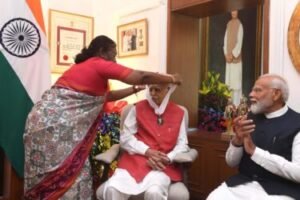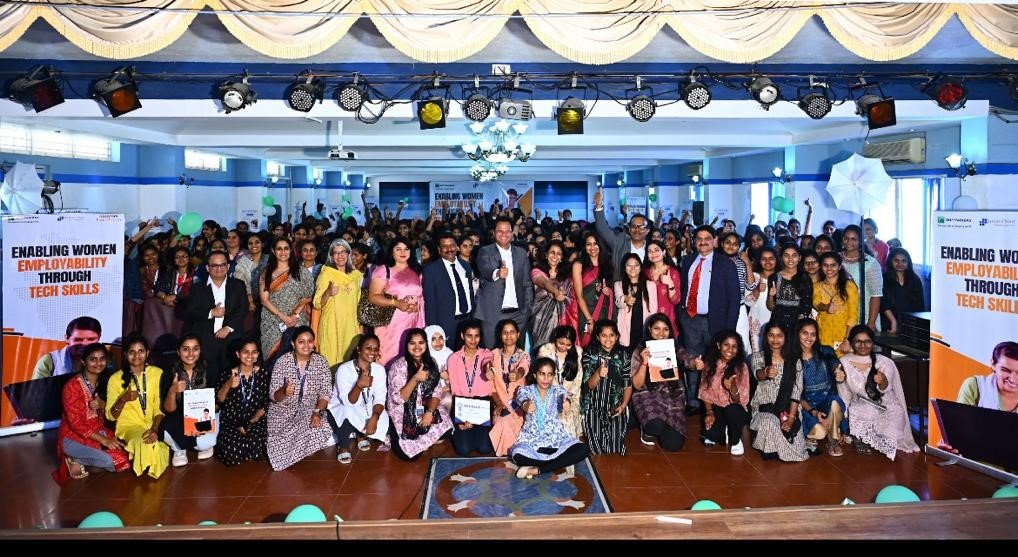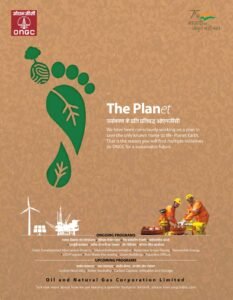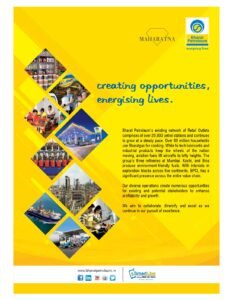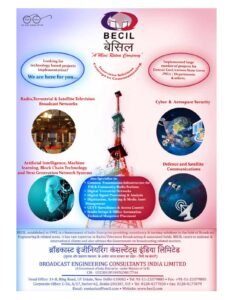Prof S PARASURAMAN
There has been tremendous progress in the field of social sciences in the past 100 years. Sustainable Development Goals (SDGs), with their focus on sustainability, equality, and unity, for the first time, forefronted social science concerns as leading the development of the world. The indiscriminate use of technical solutions for economic growth without adequately considering psychological, social, and cultural elements of human organizations and systems had glaringly resulted in short-term gains, but grim losses for the world jeopardized the future. It is this realization that has resulted in the attention given to inequality as a central concern in the SGDs: the realization that human systems and organizations, which are in the proper domain of the Social Sciences, have to transform towards ensuring universal well-being, and merely scientific and technical solutions are inadequate. Social sciences are assuming a greater leadership role both because of the burgeoning services sector and also because of the growing recognition of the need for sustainable development and social justice.
Across the world, Social Science education has been considered less important than education in physical science and technology. For instance, national ranking systems still don’t include books published by reputed houses in the criteria for assessment for excellence comparable to patents in physical sciences. Since knowledge in Social Sciences grows through analytical texts, ruling out published books as an important output shows basic gaps in understanding the nature of Social Sciences in education policy.
Amidst all these concerns, debates, interventions, and progress in social science, the role of Prof. S. Parasuraman, who worked as director of the Tata Institute of Social Sciences, has been incredible. With over 25 years of experience as a teacher, trainer, activist, administrator, and development worker, Prof. Parasuraman enjoyed working in challenging social, political, and physical environments. He has always liked to be part of a larger team and has the rare ability to work in a multicultural and multi-disciplinary team. It was pioneering efforts made by scholars like Prof. Parasuraman that placed social science education on par with physical sciences, recognizing that scholarship and education in the former were vital for a developing nation. Arising from these noble aspirations, TISS, under his leadership, also had another unique character: standing with the poor and marginalized. Indeed, it is this very intuitive and compassionate character of the Institute that is of great relevance to the current interconnected world of today, as recognized by the SDGs in their focus on poverty.
The vision of TISS, under the guidance of Prof. Parasuraman, was to be an institution of excellence in higher education that continually responded to changing social realities through the development and application of knowledge toward creating a people-centered, ecologically sustainable, and just society that promotes and protects dignity, equality, social justice, and human rights for all.
Though TISS has been considered a prestigious place for education and research on interdisciplinary areas of social sciences in the country and in the Asian region, it grew further under Prof. Parasuraman’s leadership. From an institute that had around 300 students in 2004, TISS now has around 5000 students spread across four campuses—Mumbai, Tuljapur, Hyderabad, and Guwahati—offering over 50 postgraduate programs from its 20 schools and 45 centers. It has retained its quality of excellence as an institution of higher education in social sciences and is placed at the top of all universities accredited by the NAAC (3.89 out of 4.00) in the country right now. TISS’s earliest courses related to social work as well as human resources and labor studies remain the best not only in the country but also in Asia, and they have diversified. Many of the TISS courses that have pioneered new areas of social sciences education have been replicated across the country.
Besides taking the institution to a new academic height, Prof. Parasuraman has the credit of establishing and nurturing institutions. He is also acknowledged for his efforts to facilitate capacity-building through a rights-based approach to development. Contributing to team building, conflict resolution, and the professional and personal development of staff at all levels in the organization have been some of the qualities he has been cherished for. He has also served the institution by managing complex programs spreading across large regions.
Prof. Parasuraman has held several positions during his long and illustrious career, including the most prestigious and important responsibility of being Director (Vice-Chancellor) at Tata Institute of Social Sciences since 2004. He was senior advisor to the United Nations Human Rights Commission, UNESCAP, Bangkok, Thailand (responsible for auditing all specialized UN organizations and programming development work in the rights framework in countries in the Asia region). He was entrusted with the responsibility of Asia Regional Policy Director, Action Aid International, Asia Regional Office, Bangkok, Thailand (January 2001–June 2004). Prof. Parasuraman was the team leader of the Secretariat and Senior Advisor to the Commission, World Commission on Dams (Employees of the World Bank and IUCN: September 1998–December 2000). Programme Director, Oxfam GB, India Programme, New Delhi (October 1995–December 1997), Professor and Head of Unit for Rural Studies, TISS (1993–1998), TISS, Reader in Social Sciences, TISS (1987–1992), visiting Senior Fellow, Institute of Social Studies (ISS, The Hague), and lecturer, Unit for Child and Youth Research, TISS, have been some of the important responsibilities that he has borne with utmost sincerity and dexterity.
Prof. Parasuraman took over in 2004, when the TISS undertook a fundamental review of its own identity and relevance. The dire and unrecognized need for a critical social science education in the country came to its attention to foster human rights and development professionals, guide policy, and support and empower local communities. At this time, the Institute was already contending with many of the elements of sustainable development and social justice and foresaw the larger, more expansive role that social sciences would assume in the future. A detailed benchmarking of TISS’ current work against the perspectives and goals of the SGDs shows that TISS’ subsequent development is in close synergy with the perspectives of sustainable development and human rights that have informed the goals.
Professor S Parasuraman with Tibetan spiritual leader His Holiness Dalai Lama
While taking responsibility for TISS, Prof. Parasuraman encouraged research in different areas, but water and energy resources—options assessment and decision-making processes—public policy and governance, higher education administration, development debate, involuntary resettlement of people, globalization and governance, social exclusion, understanding and addressing agrarian distress, agriculture and nutrition, corporate social responsibility as an instrument of inclusive growth, and youth for social and economic transformation of rural and tribal areas have been the areas of his research interest. He is credited with having done a lot in these areas.
The institute all through its history stood with the poor and the marginalized class of the society. The entire TISS community believes in learning from the inner wisdom of people and communities, even as they contribute their professional knowledge and competence in return. Prof Parasuraman played an important role to realise such values. Perhaps this is the reason that the Institute’s work has been so effective in its work over its history. TISS has grown organically and systemically from this principle of commitment to stand with the poor through the following generic steps to address the need on the ground through participatory and dialogic methods with local communities / key groups and stakeholders; integration of the learning in the classroom as well as generation of new and relevant courses; analysis and advocacy to address underlying causes; and generative dialogues and partnerships with diverse stakeholders to share learning and evolve systemic solutions: government, corporate, media, civil society and people’s movements.
The Institute’s commitment under the leadership of Prof Parasuraman to remain rooted to ground realities is through four key thrust areas: critical pedagogy is grounded in practice; field action projects that reach out the most vulnerable and marginalised populations of the nation, the invisibilised and the silenced; evidence-based policy advocacy particularly related to social security, basic entitlements and human rights; and commitment to building partnerships and dialogic platforms that include diverse stakeholders and responsibility holders: local self-governments, peoples’ groups and networks, young people as catalysts for civil society action to address poverty and vulnerabilities, the State and Union Governments, Business and Industry. Embedded in its curriculum is a special, often invisible, lesson that weaves compassion in students, teachers and partners for disadvantaged peoples in a fast moving world in the pursuit of wealth. Over the years the quiet perseverance of TISS graduates working at gut wrenching social issues in key government and corporate organisations as well as civil society and communities have resulted in critical contributions to the nation’s development and social justice.
Prof. Parasuraman has over 50 publications in the form of articles in international and national journals, books, and research reports. He was awarded the Bharat Shreshta Acharya Award 2012 by MIT, Pune, Maharashtra.


